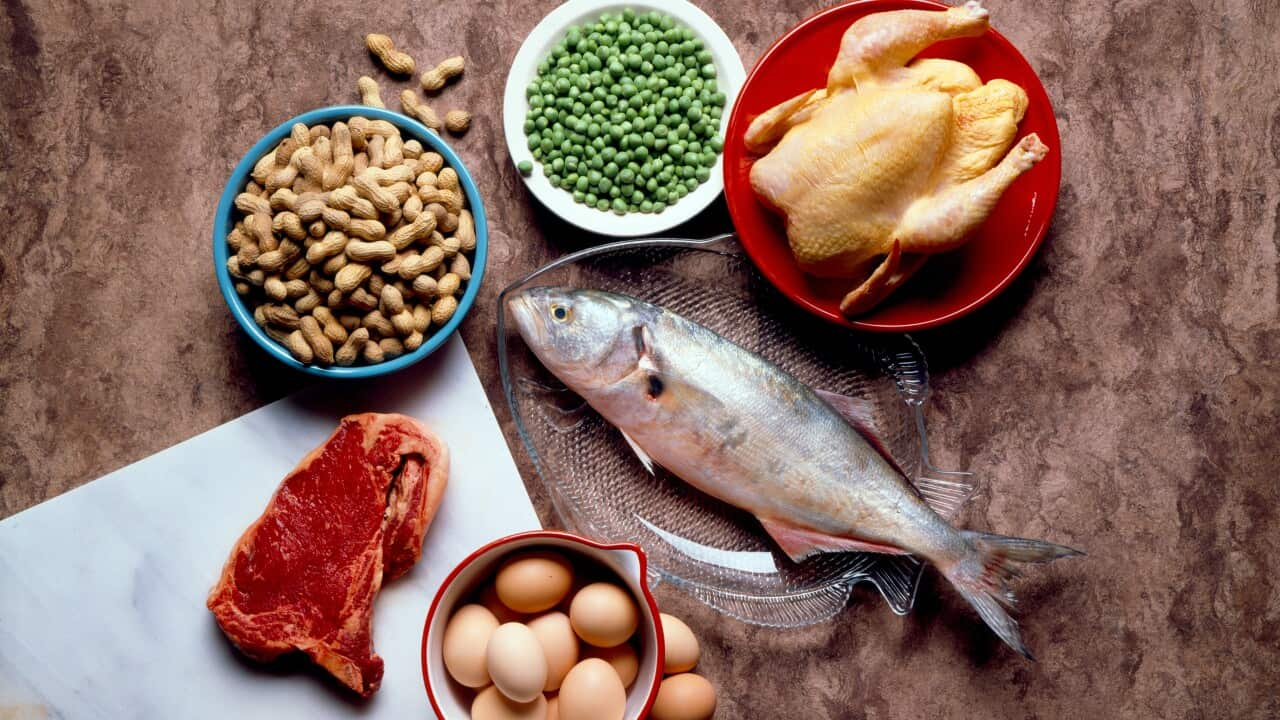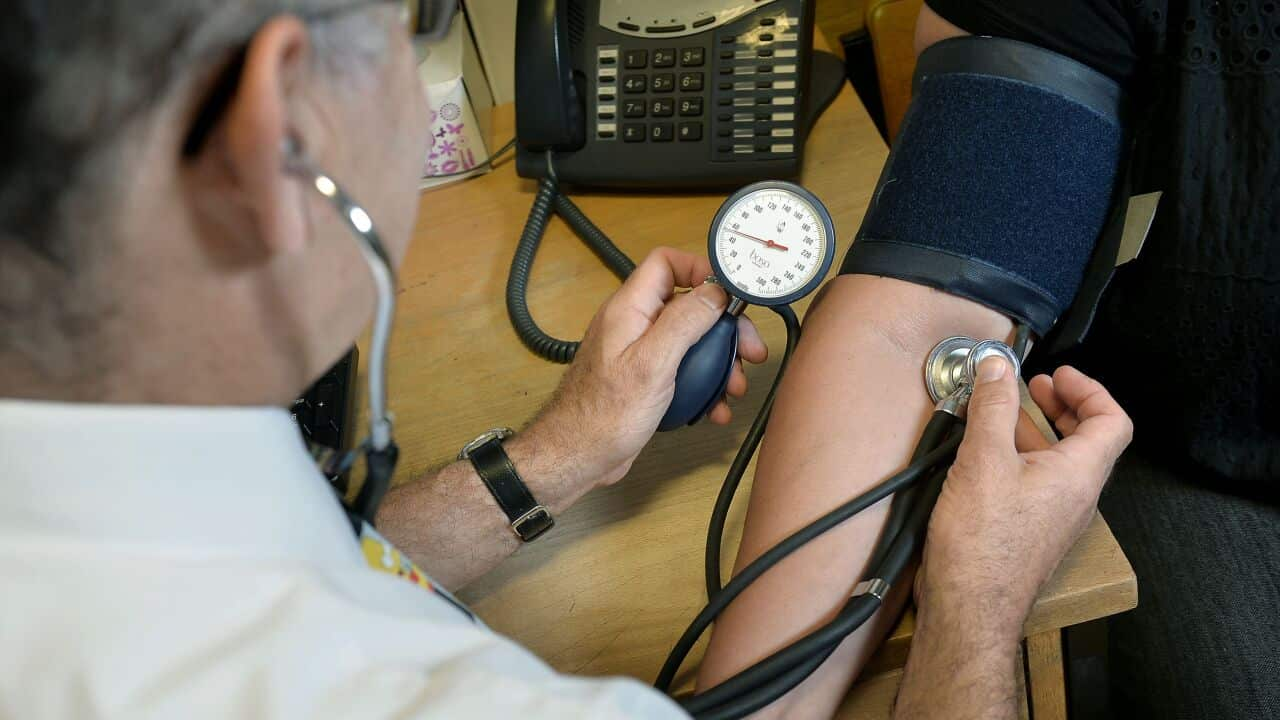Key Points
- Protein is described by the Dietitians Australia president as the 'building blocks' of the body.
- It's also a trending topic on TikTok and Instagram.
- But should people be taking dietary advice from social media?
There are almost three million posts on Instagram labelled #highprotein, many featuring men or women in workout gear.
Protein intake is the latest health food topic getting traction on social media, and the message is usually that people aren't getting enough of it — but is that true?
What does protein do for us?
Dietitians Australia president Dr Fiona Willer said protein can be thought of as the "building blocks of our own bodies".

Fiona Willer from Dietitians Australia says adding protein to a a diet is generally not needed for most Australians. Source: Getty / Kindamorphic
Protein is a key part of many foods, including meat, poultry, eggs, beans, milk, soy products, nuts and legumes.
Willer said as our bodies digest food with protein, it gets broken down into its component amino acids, "and then builds whatever it needs of its own body out of it".
Daily protein on a plate
She said the recommended daily amount of protein a person should eat is 46 grams for a woman and 64 grams for a man.
"So something like a steak, for every 100 grams of steak that we eat, that's 25 grams of protein, same with chicken, something like a cup of milk is about 10 grams of protein in there," Willer said.
"It's very difficult to be protein deficient in Australia.
"There'd be very few people that need to eat differently in order to meet their protein requirements.
"So that is the recommended daily dietary intake, to cover the body's protein requirements for 97 per cent of the population," she said.
Dietitians Australia, the peak body for dietitians and nutrition professionals, says exact protein requirements can depend on age, gender, height and weight. The Department of Health provides .
What's trending?
A study published last month in the international research journal Appetite looked at misinformation about nutrition provided to youth by content creators. It said: "Health information, particularly about nutrition, has flourished on social media in recent years. However, these claims often lack proper scrutiny enhancing the risk of misinformation."
TikTok features video after video of people posting their "day of eating 140 grams of protein".
Willer said: "It would be very rare circumstance where that much protein would be biologically required, and she's kind of eating for three, if it's that much protein."
Many influencers try to suggest they are offering help, saying: "if you’re struggling to eat enough protein…" giving the sense that what they have to say could be health advice.
Willer said a lack of protein is more often than not associated with famine, malnutrition or childhood neglect.
But what if you work out a lot?
She said even for those who spend a lot of time exercising, they generally do not need more than the average daily recommended amounts.
"If you are exercising at the level of an elite athlete, there are some increased needs but if you were doing that, that's a special circumstance where you should really be supervised by a sports dietitian," she said.
"Even the regular, pretty fit human, they don't need to worry about counting grams of protein ... it will be being met through the process of just meeting their through their appetite cues."
What happens if you eat too much protein?
Willer said eating too much protein could potentially put a strain on your kidneys.
"When you have a super high protein intake, for regular, healthy humans, kidneys can usually cope with that, but for people whose kidneys are not working at full tilt, that may be a challenge," she said.
She said kidney disease could occur as a result of excess protein but people often lived with it for some time before it is diagnosed.
Willer said the main reason people should be wary of a high-protein diet is that it would inevitably mean their diet is not balanced.
"Rather than thinking about the detriment that protein itself can bring, it's really what it's crowding out ... other things that we need to function well, like fruit, vegetables, grain foods, fibre."
So why the trend?
Willer said there's "been no big breakthrough studies that have shown eating a huge amount of protein is related to superhuman abilities".
"It's absolutely a social media-birthed trend that's not really based on current scientific research findings."
Willer said despite this, food companies had jumped on people’s hyper-awareness about protein.
"There’s 'high protein' cottage cheese, but the nutrients in it were no different from regular cottage cheese, so some of it will be labelling has changed to highlight the normal amount of protein," she said.
"But I'm sure that there are products being reformulated for higher protein claims. We see that every time there's a trend."
This article contains general information only. For advice relating to your personal situation, see a qualified medical practitioner.
For support with eating disorders or body image concerns, call Butterfly National Helpline on 1800 ED HOPE (1800 33 4673) or visit www.butterfly.org.au to chat online or email, 7 days a week, 8am-midnight (AEST/AEDT).




